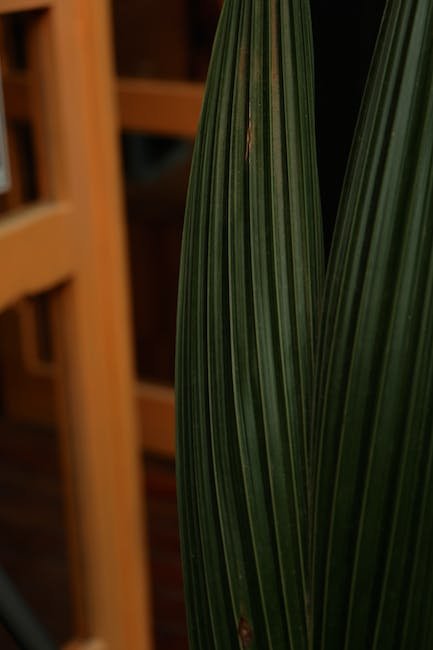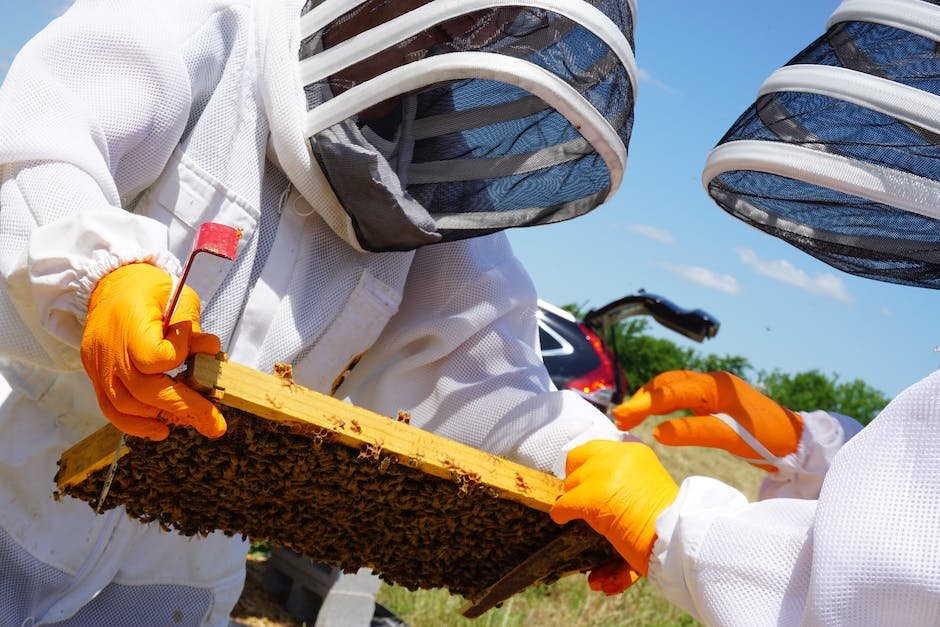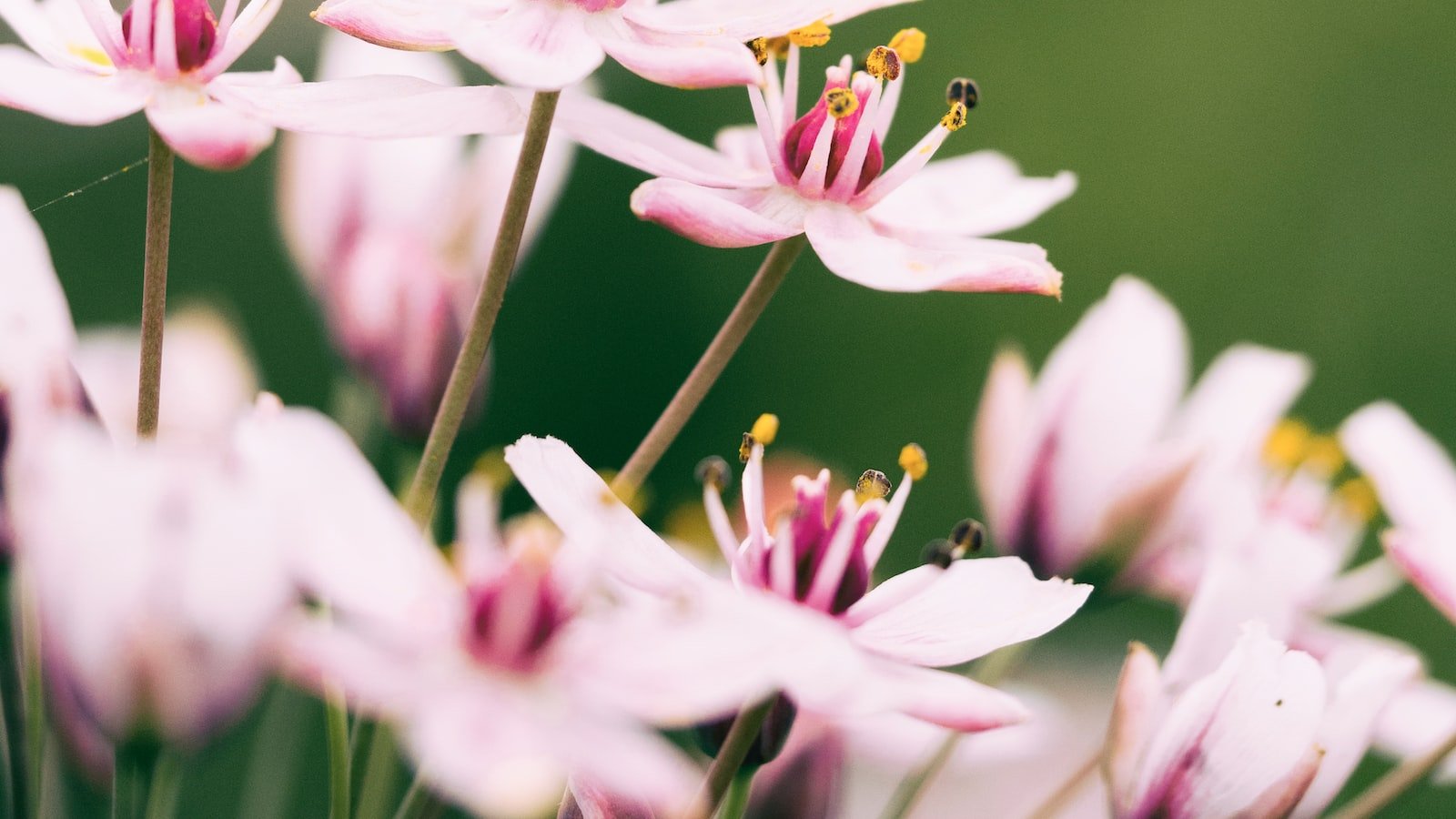Amidst the bustle and concrete jungles of urban landscapes, a quiet revolution is taking flight. As skyscrapers scrape the sky and echoes of honking cars resonate through the streets, something small yet significant is happening – the rise of urban beekeeping. In a world where nature seems to be confined to parks and preserves, the art of nurturing beehives in the heart of the bustling metropolis has emerged as an unexpected and vital force. Unbeknownst to many, these industrious urban bees, buzzing amidst the chaos, hold the key to a healthier and more sustainable future. Through their diligent pollination and the organic practices adopted by urban beekeepers, our cities can become a sanctuary for nature’s most precious pollinators, ensuring the continuity of not only their species but also our own delicate ecosystems.
Table of Contents
- Protecting Urban Ecosystems: The Vital Role of Organic Practices in Beekeeping
- Maximizing Honeybee Health: Understanding the Benefits of Organic Beekeeping in Urban Areas
- Sustainable Solutions: Implementing Organic Approaches to Preserve Urban Bee Populations
- Creating Bee-friendly Cities: How Organic Practices Support Urban Beekeeping
- Balancing Urbanization and Biodiversity: Promoting Organic Techniques in Urban Beekeeping
- Q&A
- The Way Forward

Protecting Urban Ecosystems: The Vital Role of Organic Practices in Beekeeping
The Importance of Organic Practices in Beekeeping
Beekeeping plays a crucial role in protecting and preserving our urban ecosystems. These tiny creatures, with their tireless pollination efforts, are essential for maintaining biodiversity and ensuring the health and abundance of our plant life. However, it is imperative that we adopt organic practices in beekeeping to safeguard the well-being of both the bees and the environment they thrive in.
Organic beekeeping practices entail avoiding the use of synthetic pesticides, antibiotics, and chemicals in hive management. By doing so, we protect these pollinators from exposure to harmful substances that could impair their health, weaken their immune systems, and disrupt their delicate ecosystems. Furthermore, organic practices promote the growth of healthy, disease-resistant colonies and reduce the risk of contamination of honey and other bee-related products consumed by humans.
Benefits of Organic Beekeeping:
- Sustainability: Organic beekeeping promotes the sustainability of our urban ecosystems by maintaining a balance in the environment. By allowing bees to thrive without the interference of harmful chemicals, we support the natural growth of plants, flowers, and crops that rely on their pollination.
- Biodiversity: By opting for organic practices, we help preserve the diverse range of plants and flowers necessary for bees’ survival. This, in turn, contributes to biodiversity by attracting a variety of other important pollinators and wildlife to our urban areas.
- Protection of Human Health: Choosing organic practices in beekeeping ensures that the honey and other by-products harvested from the hives are free from pesticide residue, antibiotics, and other potentially harmful substances. This protection extends to humans who consume these products, promoting their overall well-being.
By recognizing the vital role of organic practices in beekeeping, we can safeguard the health and longevity of these remarkable creatures, fostering a harmonious coexistence between human urban development and the natural world.

Maximizing Honeybee Health: Understanding the Benefits of Organic Beekeeping in Urban Areas
Urban areas may not seem like the ideal environment for honeybees, but organic beekeeping can play a vital role in maximizing their health and well-being. Organic beekeeping focuses on creating a sustainable and harmonious habitat for bees in urban settings, providing them with the necessary resources to thrive.
One of the key benefits of organic beekeeping is the promotion of biodiversity. Urban areas often lack diverse forage options for bees, leading to poor nutrition and decline in overall health. However, through organic practices, beekeepers can create a diverse range of flowering plants, trees, and shrubs that provide ample nectar and pollen sources. This not only enhances honeybee nutrition but also supports other pollinators, insects, and wildlife, resulting in an interconnected and thriving ecosystem.
Another important aspect of organic beekeeping is the avoidance of synthetic pesticides and chemicals. Conventional agriculture and urban environments are often riddled with harmful pesticides that can have detrimental effects on honeybee health. By adopting organic practices, beekeepers play a crucial role in ensuring the well-being of honeybees and the purity of their products. Organic beekeeping methods help minimize toxic exposure, allowing bees to flourish and produce high-quality honey, beeswax, and other hive products.
In conclusion, organic beekeeping has emerged as a valuable practice in urban areas, offering numerous benefits for honeybees and the environment as a whole. Through the promotion of biodiversity and the avoidance of harmful chemicals, organic beekeeping maximizes honeybee health and allows them to thrive even in urban landscapes.

Sustainable Solutions: Implementing Organic Approaches to Preserve Urban Bee Populations
The Importance of Urban Bee Populations
Urban bee populations play a vital role in maintaining the delicate balance of our ecosystem. These industrious insects are responsible for pollinating a significant proportion of our food crops, contributing to the growth of fruits, vegetables, and nuts. Without bees, many of our favorite foods would disappear from our plates. In addition, bees are also essential for the reproduction of flowering plants, ensuring a diverse and colorful plant kingdom. Sadly, urban bee populations have been declining due to habitat loss, pesticide use, and climate change.
The Organic Approach
To address the decline in urban bee populations, it is crucial to implement sustainable and organic solutions. Organic approaches prioritize the use of natural, non-toxic methods that minimize harm to bees, their habitats, and the overall environment. By adopting organic practices, such as cultivating pesticide-free gardens and creating bee-friendly habitats, we can provide safe spaces for bees to thrive. Additionally, organic farming techniques promote biodiversity, creating a diverse and healthy ecosystem that supports various pollinators, including bees.
Preserving Urban Bee Populations
There are several sustainable solutions that individuals, communities, and local governments can implement to preserve urban bee populations:
- Create Pollinator Gardens: Planting native, bee-friendly flowers and flowering herbs in gardens and public spaces can provide abundant sources of nectar and pollen for bees.
- Prohibit Harmful Pesticides: Advocate for the use of organic and bee-safe alternatives in urban areas, minimizing the potential harm caused by toxic chemicals.
- Build Bee Hotels: Constructing small wooden structures with various nesting materials can offer urban bees shelter and nesting sites.
- Support Urban Beekeepers: Encourage and support local beekeepers who follow ethical practices and provide educational programs about the importance of bees in urban environments.
By embracing sustainable, organic approaches and taking action to preserve urban bee populations, we can safeguard the future of these remarkable creatures and ensure the health and vibrancy of our urban ecosystems.

Creating Bee-friendly Cities: How Organic Practices Support Urban Beekeeping
Beekeeping has long been associated with rural areas, but the growing trend of urban beekeeping is revolutionizing the way we think about the practice. Creating bee-friendly cities is not only beneficial for the survival of these essential pollinators but also for the overall health and sustainability of urban environments.
Organic practices play a crucial role in supporting urban beekeeping by minimizing the harmful effects of pesticides and promoting a diverse range of flowering plants. By eliminating the use of synthetic chemicals, organic beekeeping provides a safe and favorable habitat for bees to thrive.
In addition to organic practices, urban beekeepers also play a crucial role in creating bee-friendly cities. They strategically place beehives in parks, gardens, and rooftops, taking advantage of available green spaces and promoting biodiversity. These urban beekeepers not only produce delicious, sustainable honey but also educate and raise awareness about the importance of bees in our ecosystem.
How organic practices support urban beekeeping:
- Minimizes the harmful effects of pesticides on bees
- Promotes a diverse range of flowering plants
- Creates a safe and favorable habitat for bees
How urban beekeepers contribute to bee-friendly cities:
- Strategically placing beehives in parks, gardens, and rooftops
- Utilizing available green spaces to promote biodiversity
- Producing sustainable honey and other bee products
- Advocating for the importance of bees in the urban ecosystem
By embracing organic practices and supporting urban beekeepers, we can all play a part in creating bee-friendly cities that nurture and protect these vital pollinators. Together, we can build sustainable and thriving urban environments for both humans and bees alike.
Balancing Urbanization and Biodiversity: Promoting Organic Techniques in Urban Beekeeping
As cities continue to expand at a rapid pace, the delicate balance between urbanization and biodiversity becomes crucial. One way to preserve and promote biodiversity in the midst of urban development is through organic techniques in urban beekeeping.
Why is urban beekeeping important?
- Urban beekeeping provides a sustainable solution to support pollination and foster plant diversity in urban areas.
- Bees play a vital role in the ecological balance by pollinating plants, which leads to the production of fruits, vegetables, and nuts.
- Creating bee-friendly environments in cities helps mitigate the decline in bee populations, ultimately benefiting the environment and food production.
The advantages of organic techniques:
- Chemical-free approach: Embracing organic techniques ensures the well-being of bees and the environment by avoiding harmful synthetic pesticides and fertilizers. Organic beekeeping promotes the overall health and resilience of bee colonies.
- Promoting biodiversity: By using organic methods to treat pests and diseases, urban beekeepers encourage a diverse ecosystem, allowing beneficial insects, birds, and other wildlife to thrive alongside the bees.
- Educating the community: Urban beekeeping offers opportunities for education and awareness regarding the importance of pollinators, sustainability, and the connection between urban spaces and nature.
By embracing organic techniques in urban beekeeping, we can foster a harmonious coexistence between urbanization and biodiversity. This symbiotic relationship not only benefits bees and the environment but also enriches our cities with flourishing green spaces and a more sustainable future.
Q&A
What is urban beekeeping?
Urban beekeeping refers to the practice of keeping honeybees in urban areas, such as cities or towns, instead of rural or agricultural regions. It involves creating suitable habitats for bees to thrive and produce honey within the urban landscape.
Why is urban beekeeping important?
Urban beekeeping plays a crucial role in supporting pollinator populations and ecosystem health in cities. Bees are vital for pollinating flowering plants, including food crops, within urban areas where green spaces can be limited. It also creates awareness about environmental issues and fosters a deeper connection with nature.
How do organic practices contribute to urban beekeeping?
Organic practices in urban beekeeping eliminate the use of synthetic pesticides and chemicals, ensuring the bees have access to a safe and healthy environment. By avoiding harmful substances, organic beekeepers help protect the bees’ health and promote ecological balance in urban ecosystems.
What are the benefits of organic beekeeping practices?
Organic beekeeping practices promote biodiversity and contribute to the overall health of urban environments. By avoiding chemicals, bees and other pollinators can freely forage and contribute to a cleaner, pollutant-free urban ecosystem. Additionally, organic practices also yield high-quality organic honey, which is free from residues typically found in conventionally produced honey.
How can urban beekeepers adopt organic practices?
Urban beekeepers can adopt organic practices by providing diverse and chemical-free forage, avoiding the use of synthetic pesticides or fertilizers, and using natural methods to manage pests and diseases. Creating pollinator-friendly habitats with native plants and ensuring a pesticide-free environment are essential steps in embracing organic beekeeping.
Can urban beekeeping have any challenges?
While urban beekeeping has its benefits, it may face challenges such as limited forage sources, potential exposure to urban pollutants, and conflicts with neighbors due to fear or nuisance concerns. Adequate research, proper hive management, and effective communication with the local community can help mitigate these challenges for successful urban beekeeping.
How does urban beekeeping contribute to sustainable cities?
Urban beekeeping contributes to sustainable cities by supporting the local food system through pollination, enhancing urban biodiversity, and promoting environmental education. By integrating bees into urban landscapes, cities become more resilient and self-sufficient in terms of food production and environmental conservation, while also fostering community engagement.
The Way Forward
As our journey through the buzzing world of urban beekeeping comes to a close, it is clear that the importance of organic practices cannot be overstated. We have witnessed the enchanting dance of honeybees amidst concrete jungles, witnessing their resilience and adaptability.
By embracing organic practices in the realm of urban beekeeping, we not only safeguard the health and vitality of these remarkable creatures but also contribute to the flourishing of our urban ecosystems. The harmonious union of nature and cityscape has never been more crucial.
Through our exploration, we have discovered the power of organic practices in mitigating the dangers of pesticides, fostering vibrant biodiversity, and securing a future of thriving urban bee colonies. By weaving organic principles into the tapestry of our beekeeping endeavors, we contribute to a healthier environment for both bees and humans alike.
These gentle pollinators hold the key to the delicate balance of our ecosystems—drawing luscious greenery into parks, orchards, and flowerbeds. They are the epitome of perseverance, perpetuating the cycle of life amidst towering skyscrapers and bustling streets.
As urban beekeepers, it is our duty to respect nature’s wisdom and seek symbiosis rather than control. Every action we take is a brushstroke in the evolving masterpiece of urban beekeeping. By integrating organic practices into our routines, we nurture a safe haven for honeybees to thrive and fulfill their vital role in the pollination process.
As we bid farewell, let us embark on this journey forward, inspired to champion organic practices in urban beekeeping and champion a future where bees grace our cities, not as harbingers of fear but as ambassadors of harmony. Together, we can usher in an era where the urban landscape gleams with the celestial hum of flourishing bee colonies—crafted by our collective commitment to organic practices.
So, let us spread our wings and nurture the sweet nectar of change. The vibrant gardens that await us in this urban tapestry will testify to the harmony we can forge when we understand the importance of organic practices in urban beekeeping.
As an affiliate, my content may feature links to products I personally use and recommend. By taking action, like subscribing or making a purchase, you’ll be supporting my work and fueling my taco cravings at the same time. Win-win, right?
Want to read more? Check out our Affiliate Disclosure page.